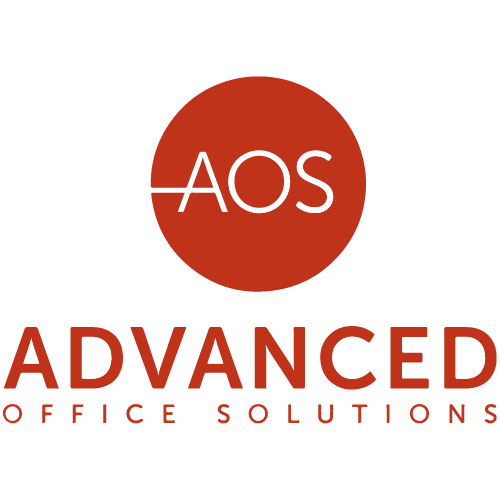PCs networked in a peer-to-peer fashion are adequate when you have only two or three users on the network. After that you really need to consider investing in a network server. Here's why.
Do you really need a network server?
Peer-to-peer networks do not provide you with much in the way of security and resource sharing can be somewhat problematic. So, not surprisingly, they often have problems accessing workstations, lost data due to viruses or spyware and could experience intermittent Internet problems. The breaking point is typically more then 5 or 6 users on your network and as such investing in a network server.
Nevertheless, convincing a business owner to make this type of investment can be hard sell. Unlike large corporations, smaller businesses do not have the benefit of an IT department and/or the necessary capital to maintain a complex IT infrastructure. However, network servers do not have to be overly expensive or complex for a business to benefit from them. While implementing a network is not a trivial or an inexpensive undertaking, the benefits you gain by adding a server to your computing environment far outweigh any shortcomings.
But What Exactly is a Server?
Many people are under the misconception that a server is no different from a typical desktop PC. This couldn't be further from the truth. While almost any PC that meets the minimum hardware requirements can run the server operating system, that doesn't make it a true server. A desktop system is optimized to run a user-friendly operating system, desktop applications, and facilitate other desktop-oriented tasks. Even if the desktop had similar processor speeds, memory and storage capacity, it still isn't a replacement for a real server. The technologies behind them are engineered for different purposes and peak demand.
A server is engineered to manage, store, send and process data, 24 hours a day, 7 days a week, 356 days a year. For these reasons, servers need to be far more reliable then their desktop counterparts
So now that you know what makes up a server, what can a server do for you? There are multiple reasons to have a file server. Some of the more important examples are the following:
- File and Network security
- Increased reliability
- Centralized data storage and shared resources
- Antivirus Management
- Centralized Backup
Cloud vs Physical Server?
There are pros and cons to both of options course. Here are a few to consider:
Physical server gives you control, allows critical data to be IN HOUSE, not relying on an internet connection, and it is typically more cost effective for small to medium size businesses. Cons to a physical server include needing the necessary space for the infrastructure, a capital investment, and dedicated IT support.
The pros to a cloud server work vice versa in the infrastructure and space elements but cons include if internet goes down, you will not have access to your information. In addition, the costs and time it takes associated with data recovery could significantly outweigh the costs of a physical server. Lastly, the costs for hosting data in a cloud server may limit the information you can afford to store or worse may catch you by surprise.
Do I Need a Dedicated Server?
Six Reasons You Do….
How do you know when you should introduce a server into your office network? If any of the following scenarios sound familiar to you, it is time to think about deploying dedicated server hardware on premises.
Managing e-mail for an increasing number of users. Many businesses start out using free cloud-hosted e-mail services. For example, Microsoft Office 365 Business Membership works great for keeping a small workforce connected and in sync with their messaging. You can scale up the ranks in Office 365 to Enterprise licensing and always have adequate user inboxes.
Multiple users need to access the same data. Even small businesses need a centralized data storage location. Cloud hosting is wonderful as well, but after a certain point, cloud hosting costs can get unwieldy if you’re not mindful of pricing and SLAs. Cloud storage comes with its risks, and if Internet goes down locally it disrupts your access to cloud data.
You Start to Use Applications that Require a Secure Database. A database stores information that can be accessed and updated by programs. For instance, if you have multiple POS stations or employee time clocks, the database houses the files containing information about inventory, order history, and punch-in times. Planning on implementing QuickBooks? A database stores your essential information securely, limiting access. Storing important data on an unsecure storage solution like a USB drive introduces risk into your systems.
Managing shared resources across the workspace. Some examples of shared resources include printers, optical disc drives, and applications. Servers can take over the print sharing duties of a router and allow for the use of older unsupported printers.
Centralized control over network security management. In a peer-to-peer network configuration, installing security software on every machine offers excellent protection. In an environment of 10+ seats, going to every computer and running an installer takes up quite a bit of time. A single Windows Server security application makes network-wide security management much easier. From a single machine, you can run virus scans, manage spam filters, and install programs across the network.
One computer to do the job of multiple systems. A server can assume the functions of some devices, such as the router, the networked-attached storage device, backup storage drive, and firewall. With a server, you can virtualize the functions of multiple devices to run simultaneously on the same machine. Some server tasks barely tax the hardware so running multiple physical systems can be a waste of space and energy when a single server can suffice.
If you experience the scenarios above, I believe it is time consider a dedicated server. We are here to help!


